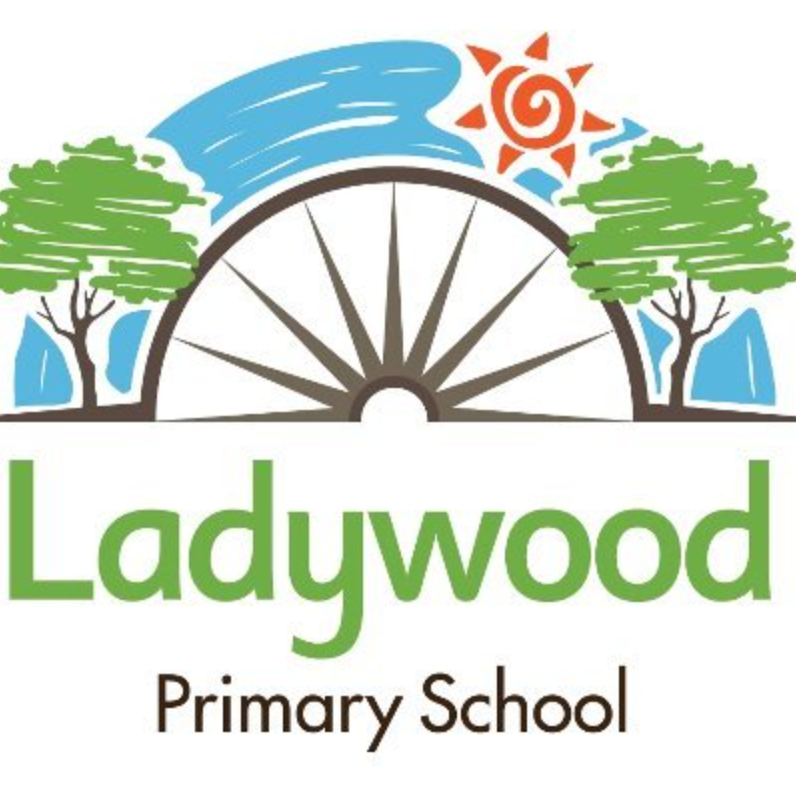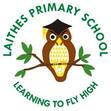FAQ
General
A MAT is a formal collaboration between two or more academy schools where all of the schools in the trust are able to work together. Where schools are judged to be good/outstanding they continue to be run by their Governing Body, if a school causes concern or is judged to be requires improvement or special measures then the Trust will take more responsibility for the leadership.
Schools in a MAT do not need to be the same type of school. For example, primary schools can be in a multi-academy trust with secondary and/or special schools. Once established, MATs are able to grow if more schools wish to join.
No. Trustees want all schools within the Trust to maintain their own individuality and identity.
The Trust’s model allows schools to benefit from working together and sharing best practice while keeping their own identity because of the way they are run by their Governing Body and Headteacher.
Although there will be a single board to oversee all of the Trust, each school still maintains a local governing body (LGB) and, as such, retains autonomy. The governors on this LGB, including parents, are there to represent the interests of their school.
Headteachers continue to lead their own schools in the Trust, but are more able to focus on teaching and learning as many of the operational aspects of school management are dealt with across the trust.
Being part of the Trust allows schools to:
- share best practice
- be more financially efficient than standalone schools (for example by paying for services centrally)
- focus funds where they are most needed
- have more flexibility in how staff are deployed
- establish succession planning programmes and secure the school improvement of all its schools.
Academies receive the same levels of funding for their pupils as local authority maintained schools, and there is no additional funding for being in the Trust.
Parents
No. Each school in the MAT retains its name. As part of the Trust we only ask schools to place the Every Child Matters logo on the school sign and stationary.
No the Trust does not ask the school to change its uniform.
Yes, this would be done in exactly the same way as in local authority schools. Infant children would still receive the Universal Free School Meals funded by the government. In other year groups all schools within the Trust will still provide Free School Meals and other benefits for families who are entitled to them.
We intend to keep with the current arrangements as set out by the local authority. That means being very inclusive welcoming all children including those with disabilities and special needs, and giving preferential admission to siblings.
No. Academies have to follow the exact same government guidance and law on excluding pupils. This includes reporting exclusions to the Local Authority.
Yes, this would be done in exactly the same way as in local authority schools.
No. For schools with a Nursery the DfE will continue to fund this in the same way that they are currently funded.
We currently teach to the National Curriculum and we already have the power to change this if we wish. Our main consideration is to continue with a 'broad and balanced' curriculum that helps us to give children a 'lifelong love of learning'.
No. The staff currently employed by the school transfer into the employment of the Trust and remain contracted to work at their current school. The decision of where existing staff will work in the future is down to the individual and the school.
New staff who join the Trust can be placed in other schools in the future, this decision is made by the board of trustees in consultation with governors and staff and the decision is made according to school’s needs and staff expertise
All schools have the ability to set their own term dates. We currently work with our network schools and the local high school to try and provide term dates that suit both the needs of our children and parents/carers. There is no intention to alter the current arrangements and not follow local authority holidays.
No. There will be, as there is now, a complaints policy which gives an avenue for parents to complain. Any external support currently available to parents/pupils will remain unchanged.
Since an academy seeks to be at the heart of a community it will therefore collaborate and share with other groups, schools and the wider community in things such as facilities, expertise, support and advise.
The Trust recognises that PTA’s have an important role to play within the context of support to the school and will encourage this to continue.
Parents will be represented on individual school’s LGBs as they currently are.
The MAT will lease the public land from the freeholder (usually the local authority) on a long lease (125 years).
No. There is no intention to charge in the future for anything that is currently free.
Govenors
Following approval by the Governing Body, the school can register an interest in becoming an academy.
At the time of the DfE providing approval in principle to become an academy (through the issuing of an Academy Order), a basic start up grant of £25,000 is paid by the DfE to the school to support the conversion process. The key steps a school must take are all explained in the DfE’s conversion guide.
Given its previous experience in converting schools to academies as part of the Trust, it will take a lead in the conversion process both to reduce the pressure on the converting school and ensuring it is effectively and efficiently undertaken. This may lead to savings against the grant and these will come back to the school.
A consultation process is required with key stakeholders including staff and parents. There is no specified length of time for the consultation but it usually takes about a month and involves a range of methods of engagement with stakeholders. The Trust will produce template documents to support the process.
Most schools are able to convert in around four to five months.
Broadly speaking, although there will be a Board of Trustees that has overall responsibility for the Trust and schools within it, a school that is good or outstanding will see little in the way of change. The principles and expectations of governance are the same in academies as in maintained schools.
Each school will have a Local Governing Body (LGB) with parent and staff representation. The LGB will continue to manage the academy in line with the Trust’s Scheme of Delegation which provides significant autonomy for Good and Outstanding schools. This includes the management of its own budget (providing there are no financial difficulties such as a forecast deficit budget). The flexibility of the governance model will allow, in most cases, schools entering the Trust to replicate their existing governing body if they wish to do so.
The centralisation of a range of policies and services will enable governors to concentrate on those aspects of their role that make a positive difference to teaching and learning in their own schools.
Where a school enters the Trust as a sponsored academy, the majority of the LGB will be appointed by the Board of Trustees. There would also be staff and parent forums but these are only consultative arrangements.
The Trustees hold overall accountability for the performance of the academies to the Secretary of State. The Trust promotes the principle of 'supported autonomy' and the Scheme of Delegation reflects the level of support each academy will receive from the Trustees. It also outlines the LGB's delegated powers and responsibilities.
Again, broadly speaking, a school that is good or outstanding will see little change.
Capacity from within the Trust will be used in the first instance to provide school to school support. Where additional capacity or specialist support is required then the school to school support strategy will be driven through the System Leader Toolkit of the Tykes Teaching School Alliance. This work will be quality assured by the CEO or another system leader.
All partners of any school improvement work will be closely monitored and accounted for through a strategic plan set out at the start of the partnership. This will clearly identify who is responsible for the agreed outcomes and within what time frame. This will enable clear lines of accountability and early intervention if the work is not proving successful. If it is found that the match of the system leader is not effective then another system leader will be sourced, if it is the leadership of the academy that is ineffective then a rigorous support plan will be put in place leading to capability proceedings if necessary.
The Trust has agreed that Good and Oustanding academies receive their General Annual Grant direct from Education Funding Agency (EFA) for them to manage as required. Any reserves will remain with the individual academy but it’s expected that they will have a spending plan in place for such fund.
Those schools with a deficit budget will need to demonstrate that they have a robust plan to reduce their deficit. The Trust will look to procure value for money services through various routes and it is expected that the economies of scale that the Trust can generate will help, as will the potential to introduce more flexible staffing arrangements.
Academies will contribute between 3% and 5% of its GAG towards the operation of the central team and purchase of services centrally (details can be found in the Trust’s Core Offer document).
The Trust will lease the public land from the freeholder (usually the local authority) on a long lease (125 years).
Academies will continue to receive their Devolved Formula Capital (DFC), which is allocated on the same basis as for maintained schools, and which academies normally decide to use for capital maintenance of their buildings and ICT.
Academies can apply to the Education Funding Agency (EFA) for capital funding through the Condition Improvement Fund (CIF). The core priority is supporting condition projects; keeping academy buildings safe and in good working order is the focus of the fund e.g. addressing issues with poor building condition, building compliance, energy efficiency or health and safety. The Trust will manage these applications on behalf of the academies.
The Trust is required to take out insurance at specified minimum levels of cover to protect against potential capital emergencies.
Staff
Transfer of Undertakings Protection of Employment (TUPE) regulations apply and all staff will transfer on existing terms and conditions to the Trust as the employer.
Although it is not bound by the Standard Teachers’ Pay and Conditions Document, the Trust will be honouring the national teachers’ pay and conditions and Teachers’ Pensions Scheme arrangements for as long as they continue to exist and will also ensure that the Local Government Pension Scheme (LGPS) arrangements stay in place for support staff. As part of the conversion process, the LGPS’s administrators will undertake an actuarial assessment to determine how much the academy will need to contribute.
There are currently no plans for systematic change / re-negotiation of contracts and conditions for staff who TUPE across.
Full union recognition, agreement and acknowledgement of union duties and reasonable time off for trade union duties will be given.
LGBs will be responsible, according to their Scheme of Delegation, for appointing staff to their academy and for deciding the staffing structure that best meets the needs of the academy within available budgets.
One employer across a family of academies can allow for more effective use of staffing e.g. there may be opportunities for excellent staff to gain more experience by supporting another academy / academies, for which additional funding would be available.
New teaching and support staff could be re-deployed to another setting. This might be because of school organisation or redundancy issues, in which case LGBs will be involved in the process and will be consulted, but the final decision is with the Trustees.
There is no statutory obligation for the LGB to consult unless it is planning to make changes to working conditions or staffing before the transfer. However even if the statutory obligation does not apply, The Trust sees it as best practice to consult staff and their representatives
In all cases there is a statutory obligation on the current employer to inform employee representatives (i.e. the recognised union or, if there isn't one, elected representatives) of certain matters in writing. These are:
- the fact that the transfer is to take place;
- the date of the transfer and the reasons for it; and
- the legal, economic and social implications of the transfer for any affected employees and the measures which the employer envisages it will, in connection with the transfer, take in relation to any affected employees or, if it envisages that no measures will be so taken, that fact.
Schools will be supported with this process by the Trust.
There is an expectation that new staff will be willing to work in any of the schools within the Trust and their contract will include a mobility clause to this effect.
At appointment, it will be made clear to the new staff member where (s)he will be based. In practice, it is expected that these staff will only move to another school within the Trust with the agreement of the staff member, the LGB and Board of Trustees.











